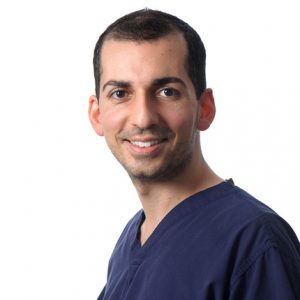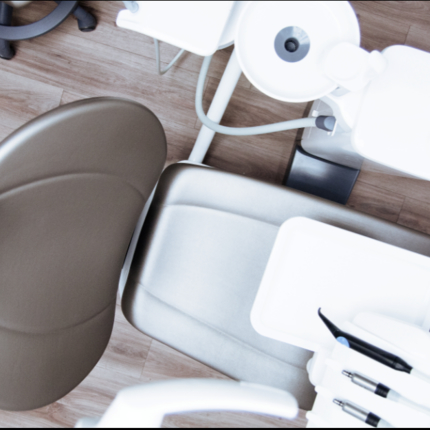There are many dentists and oral healthcare professionals in West Sussex, and many of them describe themselves and their services in certain ways, such as cosmetic dentist or hygienist or simply ‘dentist’ In this article we will cut-through what it means to be a cosmetic dentist versus a general dentist offering consultations, referrals and hygienist appointments. .
When looking for a new private dental practice there are a few considerations to make before deciding which one is right for you. Foremost, you definitely want a healthy set of teeth free from disease and underlying issues, but you may also want a stunning confident smile. Will you want to undertake some remedial work to straighten crooked teeth, whiten stained teeth or fit crowns or veneers for example, If the answer is you want good looking teeth, but you also want a practice that can do other things like annual teeth cleanings or x-rays, then a cosmetic dentist might be the right fit for your oral care.
Dentists who market themselves as cosmetic dentists specialise (and have additional training) in areas that affect the aesthetics of a patient’s smile. This may include restorations that improve the appearance of a patient’s teeth, gums, or on a practical level their bite.
Rest assured, all reputable dentists—whether they regard themselves as general dentists or cosmetic dentists—are highly educated professionals in oral health and are approved practitioners governed by the General Dental Councilto practice in the UK.
Cosmetic Dentistry Education and Training
So far we’ve touched on the fact that cosmetic dentistry is an umbrella term for dental specialties that affect dental aesthetics. The main dental specialties that can be considered cosmetic dentistry include:
- Prosthodontics
- Orthodontics
- And to a lesser degree:
- Endodontics
- Periodontics
It should be noted that cosmetic dentists don’t exist solely to give patients a better smile. It just so happens that their specialties help improve teeth function and can result in a more aesthetically pleasing smile. So while a “cosmetic dentist” certification might not exist in all countries, certifications of the above specialties will help a dentist better improve and manage the aesthetics of your teeth.
Prosthodontics
Prosthodontics is described as, “the branch of dentistry concerned with the design, manufacture, and fitting of artificial replacements for teeth and other parts of the mouth.”
Depending on the dental school and program, this requires up to four years of additional postgraduate specialty training after obtaining a dental degree. However, general dentists may perform some simple cosmetic procedures.
Orthodontics
Orthodontics is the dentistry branch that diagnose, prevents, and corrects teeth and jaw positions. If you have ever had braces or corrected over/underbites, you’ve met with a trained orthodontist.
In Europe, post-graduate orthodontic education programs are another two to three years.
Endodontics
Endodontics has immensely improved dental treatment quality and is focused on the entire tooth structure (including within and below the tooth). An understanding of endodontics is required to treat any dental trauma, cracks or root canals.
While general dentists can perform endodontic treatment, endodontists are specialists and have training in special equipment to better treat internal damage and preserve as much of the original tooth as possible. To become an endodontist, dentists usually need another two-three postgraduate training in the specialty.
Periodontics
Periodontics specializes in the structures and tissues that support the teeth. This includes the gums, certain jaw bones, and ligaments. Since many implants require the support of surrounding structures (like other teeth and gums), periodontists also help with placing and maintenance of these implants to reduce wear like diminishing gums and bone loss of nearby teeth.
An additional two to three years of postgraduate training is required.
General Dentistry Services
Many people are familiar with the general services that dentists offer. General dentists can even perform some of the specialised work of prosthodontists, orthodontists, endodontists and periodontists.
However, they just might need to refer their patients to specialists if the patient’s case requires more specialized knowledge or treatment. In this case, general dentists are like a GP. A general practitioner might refer a patient with a persistent rash to a dermatologist for example.
Most general dentists offer and perform the following services:
- Check-ups and Hygienist: Routine cleanings and check-ups for preventative care.
- Dental x-rays: These give dentists a better idea of the health and positioning of teeth.
- Fillings and sealants: Treatment of tooth cavities. Dental fillings are still the most common dental procedure performed in dentistry today. This serves both function and cosmetic improvements.
- Root canal treatments: This will replace infected tooth pulp with inert material.
- Tooth extractions: Removal of dead or irreparable teeth.
- Dentures: Imaging and implanting of replacement teeth.
- Whitening: Teeth whitening to overcome teeth staining (purely cosmetic).
- Dental bonding: Application of material to improve discoloured or chipped teeth (purely cosmetic).
- Dental crowns and veneers – A crown or cap covers a damaged tooth starting at the gum line. While this can improve a tooth’s appearance, shape or alignment, it can also strengthen the existing but damaged tooth.
- Veneers – A veneer is usually a porcelain material applied to the face of the tooth. It is most commonly used for people who wish to cover tooth discolouration or stains and change the colour, size, and shape of a tooth.
Cosmetic Dentistry Services
This is where it can get tricky.
Again, cosmetic dentists are approved and certified dentists. They just have additional training to allow them to offer and perform specialized services.
However, not all cosmetic dentists are the same — they will offer different services depending on what type of training they have pursued. One dentist might be a licensed orthodontist but haven’t the facilities or skills for the other subjects. Many dental practices can have several dentists with different skillsets meaning they can offer a breadth of services
There are only two situations where a dental practice can offer a “catch all” for cosmetic dentistry:
- A single dentist that is accredited and qualified in all dental specialisations pertaining to dental aesthetics.
- A dental practice that has multiple dentists with specialisations.
Specialised cosmetic dental services that a general dentist might not be able to perform may include:
- Dental braces: The corrective device straightens a patient’s bite. While braces aren’t always necessary, some patients opt to use them to correct minor positioning. Braces require a trained orthodontist to correctly treat, plan and implant.
- Clear aligner braces: Made famous by the company, Invisalign, these devices that use incremental transparent aligners to adjust teeth. A trained orthodontist is needed to take x-rays, bite registrations, or 3-D scans of the person’s teeth and gums.
- Dental implants: While dental implants can be done by general dentists, it might benefit the patient if a trained periodontist or prosthodontist performed the implant.
- Dental bridge: Similar to a dental implant, a trained prosthodontist or periodontist can better implant dental bridges for their patients. This will reduce the risk of imbalance, which may cause the loss of additional teeth.
- Tooth Contouring: The decision to reshape a tooth by laser removal of enamel is usually done for cosmetic purposes.
- Gum Surgery – Some patients want to remove excessive gum tissue. Or, if a patient has suffered gingivitis or their gum line recedes, gingival grafts can be added. In both cases, it would be a good idea for a trained periodontist to conduct the treatment.
Which One is Right for You?
Choosing the right dentist depends on your needs and what you find important. Whether you choose a cosmetic dentist or general dentist, you should perform due diligence and find out if they can truly deliver what they offer.
Click here to learn more about finding the best dentist in West Sussex.


